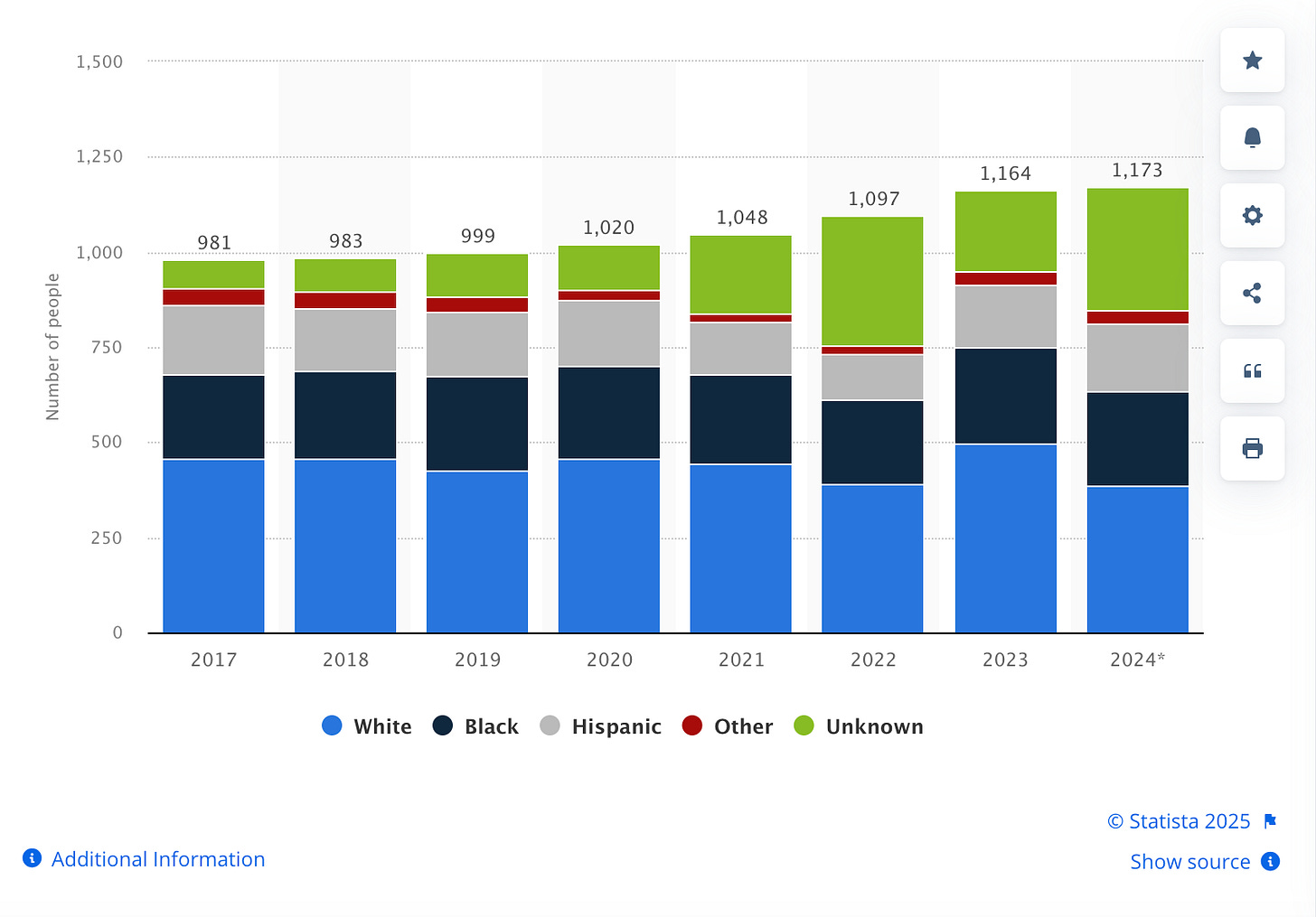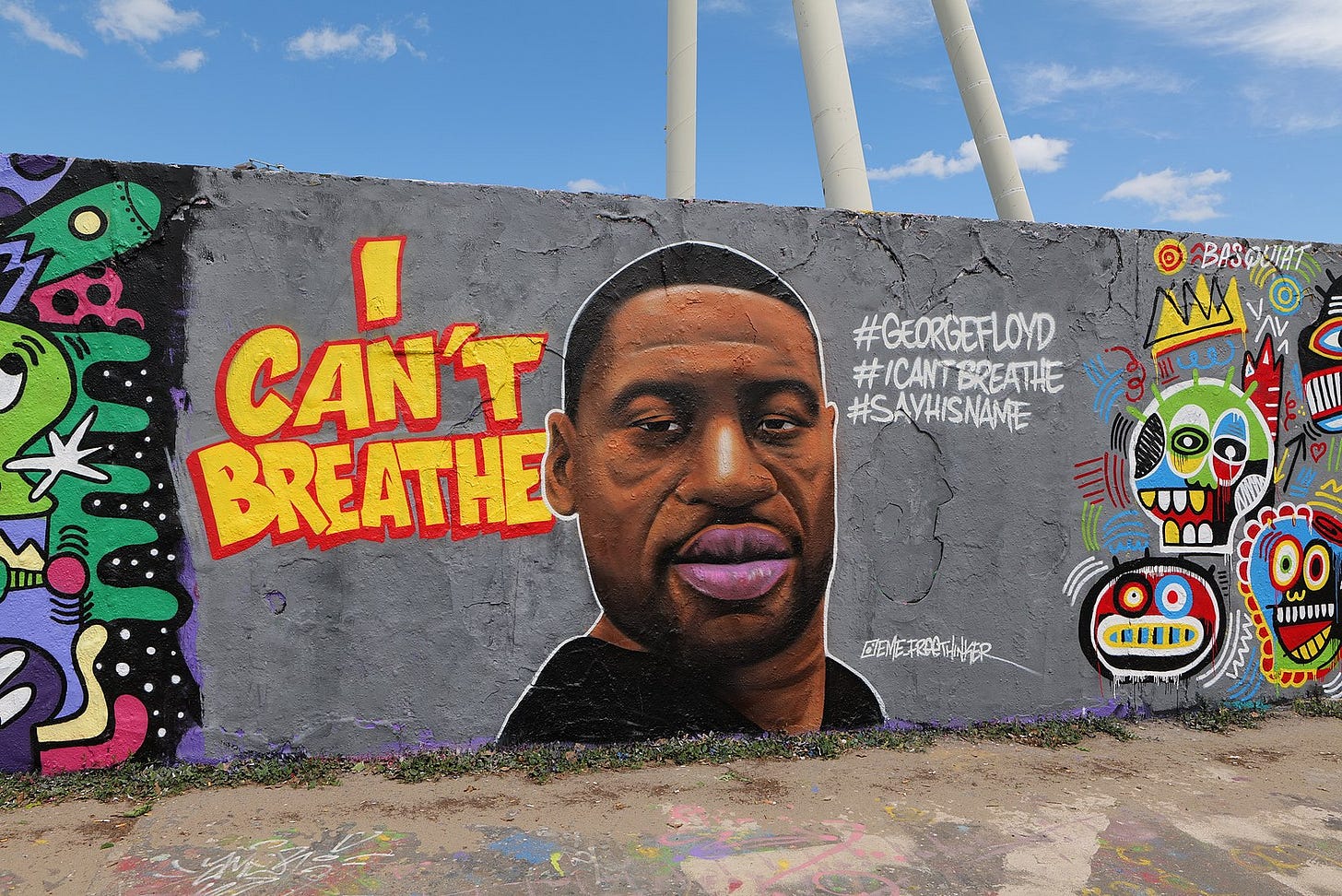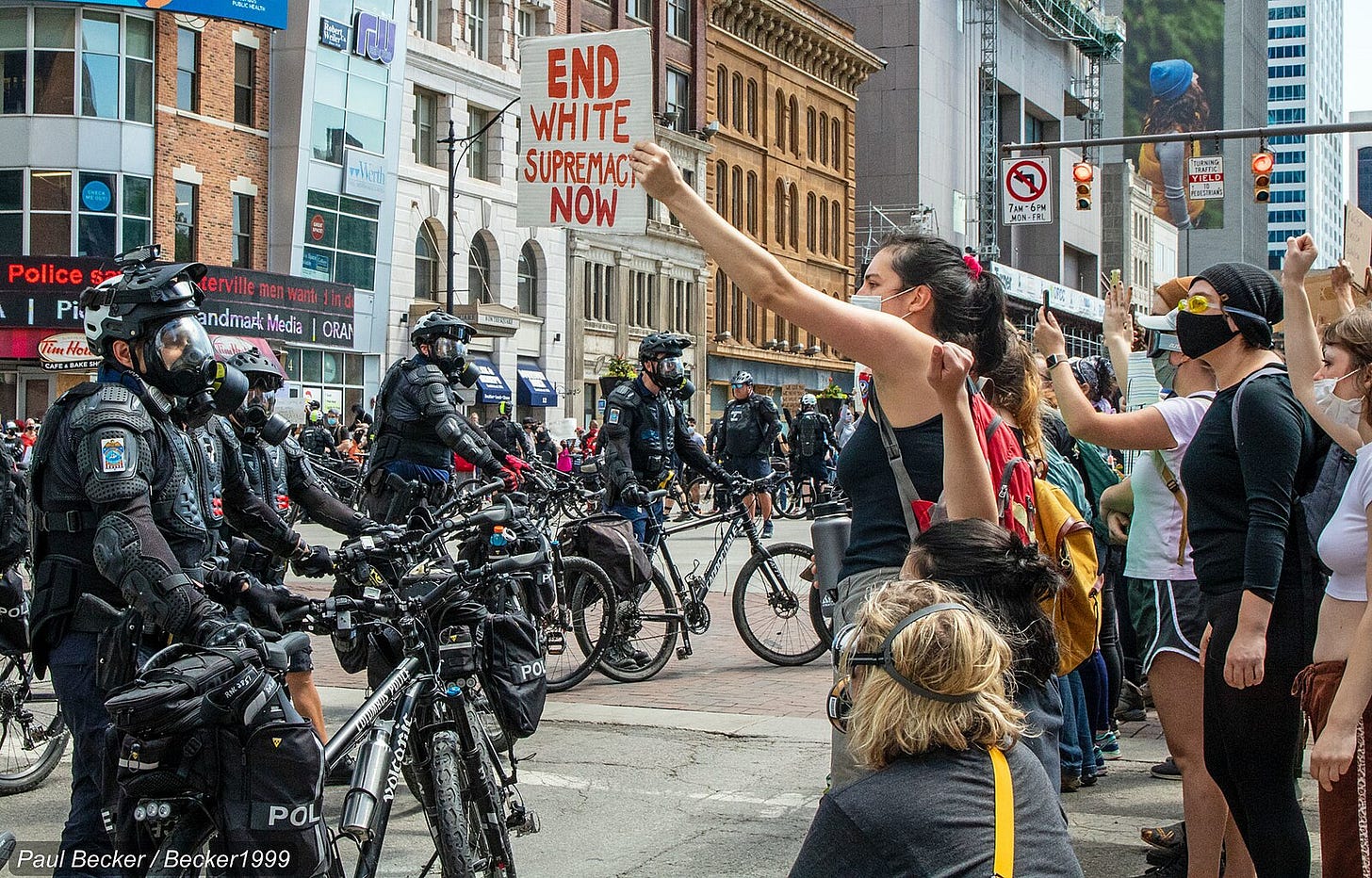5 years after George Floyd's murder, the quest for systemic change continues
Fatal police killings have been on the rise since 2020, despite efforts of police reform after Floyd's murder five years ago today.
Five years ago today, people across the U.S. were forced to stay inside their homes as the world grappled with a pandemic. Streets were empty. Hospitals were overwhelmed. And TikTok, then a quirky, rising social media platform, became a primary window into life.
It was on another screen, though, where the world would witness a moment that would shift the global conscience and create what experts call a "racial reckoning.”
17-year-old Darnella Frazier stood on a Minneapolis sidewalk, phone in hand, recording what would become one of the most memorable videos in modern history—police officer Derek Chauvin kneeling on the neck of George Floyd for 9 minutes and 29 seconds as Floyd gasped out his final words: “I can’t breathe.”
The footage unleashed a wave of protest not seen since the Civil Rights Movement. From the streets of Brooklyn to Berlin, from blacked-out Instagram feeds to towering murals, people demanded a reformation of the police system. It also forced Americans to confront the enduring legacies of slavery and Jim Crow, not just in policing, but in education, housing, healthcare, and employment, per Professor Martin Summers, a scholar of African American studies at Boston College, who spoke to us about Floyd’s death in 2021.
After his murder, more than 20 U.S. states moved to restrict the use of chokeholds and neck restraints, limit force against fleeing suspects, and require police to report use-of-force incidents. Corporations joined in the movement too, including Airbnb, Netflix, PepsiCo, Bank of America, and the Walt Disney Company, which all pledged support, released statements, donated thousands, and elevated Black-owned businesses and causes.
But five years later, that momentum has stalled, and the quest to protect citizens from abuse by the police remains a challenge, as fatal police shootings have increased since 2020.

The most symbolic shortcoming, according to Summers, was Congress’s inability to pass the George Floyd Justice in Policing Act, which would have ended qualified immunity for law enforcement officers, the legal doctrine that protects police officers from being held personally liable in civil lawsuits, among other policies designed to protect citizens from abuse by police officers.
"There was no major legislation passed after what happened with George Floyd to tackle or combat police challenges,” Summers told us in 2021.
Although local policies have remained intact, federal oversight over police officers will likely be reduced, given the Trump administration’s prioritization of “law and order.”
Just recently, the Department of Justice scaled back federal oversight of the Minneapolis and Louisiana police departments, departments where systemic abuse had been documented in extensive investigations.
“Overbroad police consent decrees divest local control of policing from communities where it belongs, turning that power over to unelected and unaccountable bureaucrats, often with an anti-police agenda,” said Assistant Attorney General Harmeet K. Dhillon of the Justice Department's Civil Rights Division. “Today, we are ending the Biden Civil Rights Division’s failed experiment of handcuffing local leaders and police departments with factually unjustified consent decrees.”
Additionally, the Trump administration’s attack on DEI (Diversity, Equity, and Inclusion) programs has scaled back the progress made by the same companies and organizations that once had the intention to make systemic changes.
But regardless of federal policies, local communities, especially those in Minneapolis, are still advocating for change and have made progress to showcase how the Black community continues to be disproportionately affected by laws, policies, and institutions in the U.S.
“We may not have passed the George Floyd Justice in Policing Act yet, but we did help bring a federal consent decree in Minneapolis, where he was killed. That didn’t happen by chance, it happened because we turned pain into purpose, and protest into progress,” wrote Reverend Al Sharpton on X
The momentum of 2020 may have slowed, but historians like Summers believe that it is woven into our collective memory and American history while also serving as a stark reminder of the long journey ahead for equality.
"The thing about history is that we have to learn from it. And so what can we, you know, what do we have to learn from here so we don't make the same mistakes again.”




